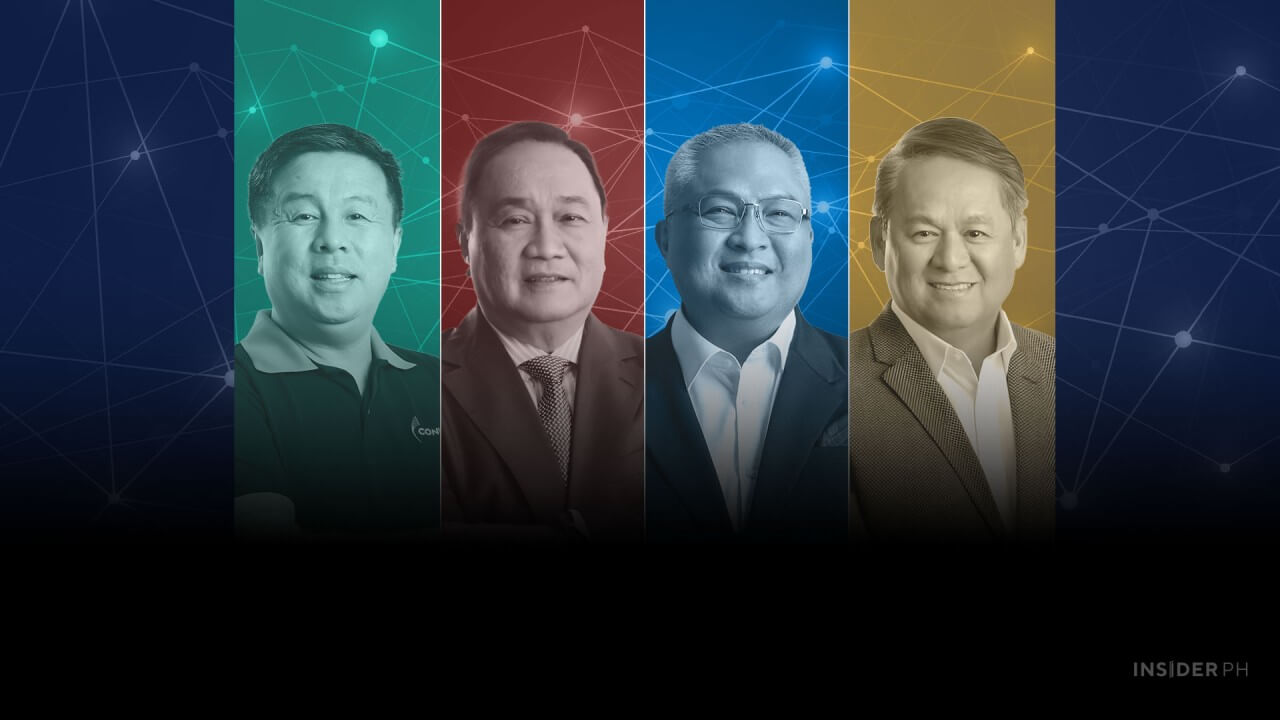

In a joint letter dated July 18 seen by InsiderPH, the chiefs of PLDT, Globe, Converge, and DITO called on the President to return the bill to Congress for further deliberation, citing a lack of consultation and serious flaws in the measure.
The letter was signed by Ernesto R. “Eric” Alberto, president and CEO of DITO Telecommunity Corporation; Carl Raymond R. Cruz, president and CEO of Globe Telecom; Dennis Anthony H. Uy, CEO and co-founder of Converge ICT Solutions Inc., and Manuel V. Pangilinan, president and CEO of PLDT Inc. and Smart Communications.
No prior consultation
The letter, coursed through DICT Secretary Henry Aguda, stressed that none of the country's leading telecom operators were consulted during the legislative process.
“It is unfortunate that none of us were invited to give our comments on the bill while it was undergoing the legislative process, and by this letter, we share with you our major concerns with the current version of KP,” they said in the letter.
"We believe in reform. But we also believe that reform must be done right," they said.
Security risks
One of the most pressing concerns raised was national security.
The CEOs noted the bill allows foreign and satellite operators to operate without a congressional franchise or physical presence. They warned that such provisions weaken disaster readiness and leave the country vulnerable during crises.
"If we allow foreign operators to control vital infrastructure without local accountability, our national security... may be compromised," they wrote, citing risks seen in the Ukraine conflict.
Blow to fair competition
The telcos also criticized the bill's proposed three-year grace period for new players to meet cybersecurity standards. They said it unfairly burdens long-standing telcos that have invested billions in fiber, towers, and cables, especially in remote areas.
“The bill creates a two-tier system: incumbent telcos must continue complying with franchise requirements, service quality metrics, emergency duties, and cybersecurity regulations—while new entrants can operate with minimal obligations,” they said.
“This creates an uneven playing field that punishes those who have followed the rules and carried the weight of national connectivity for decades ,” they added.
Legal risks
The bill’s transitory provision could void existing franchises involving data transmission, threatening investments already made under the current congressional grants.
Telcos warn this may violate due process and erode investor confidence, while the bill’s mix of unrelated provisions could face constitutional challenge under the “single-subject rule.”
Call for genuine reform
“We are not against progress. We fully support reforms that promote innovation, competition, and universal connectivity,” the CEOs said in the letter.
“But laws must be clear, fair, and aligned with the Constitution—and they must be developed in meaningful consultation with all stakeholders,” they added.
—Edited by Miguel R. Camus